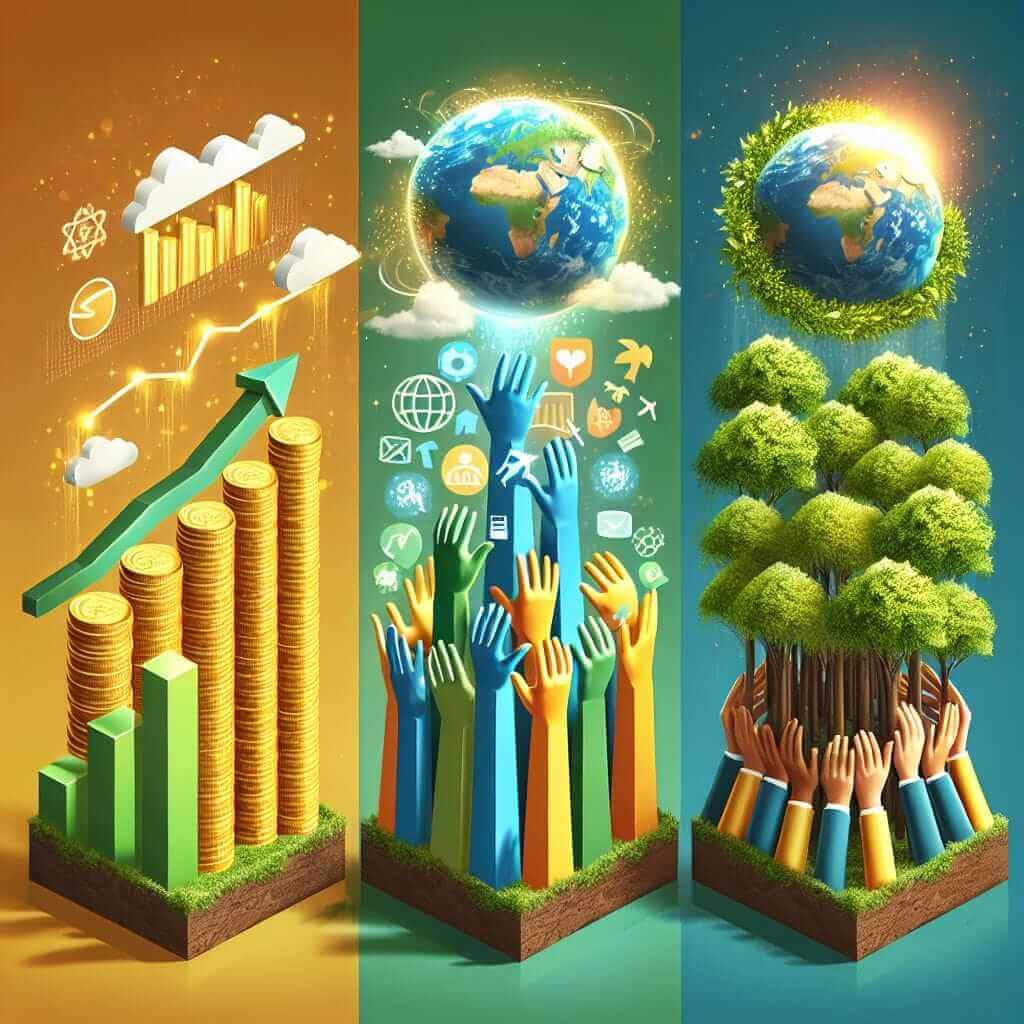The concept of corporate responsibility in achieving sustainable development frequently appears in IELTS Writing Task 2, prompting test-takers to examine the interplay between business practices and broader societal well-being. This essay will delve into a sample question related to this topic, providing a band 8 model answer and a detailed analysis to guide your preparation.
Sample IELTS Writing Task 2 Question:
Some people argue that corporations, not governments, bear the primary responsibility for ensuring sustainable development. To what extent do you agree or disagree?
Analysis of the question:
- Type: Opinion essay (To what extent do you agree or disagree?)
- Key terms: corporations, governments, sustainable development, primary responsibility
- Requirement: Present a clear and well-supported opinion on the statement.
Model Essay:
The quest for sustainable development, a paradigm that balances economic progress with environmental protection and social equity, has become increasingly urgent in the face of global challenges. While some advocate for corporate leadership in this domain, I firmly believe that governments must retain the primary responsibility, albeit with significant contributions from the corporate sector.
Advocates for corporate responsibility argue that businesses, driven by profit maximization, are often the primary contributors to environmental degradation and social inequalities. They possess the resources, innovation, and global reach to spearhead change. For instance, companies adopting circular economy models can minimize waste and resource depletion, significantly contributing to environmental sustainability.
However, holding corporations solely accountable for sustainable development is fraught with challenges. Firstly, the voluntary nature of corporate social responsibility initiatives often leads to inconsistent implementation and a focus on short-term gains rather than long-term sustainability. Secondly, the pursuit of profit can overshadow ethical considerations, leading to practices that, while seemingly sustainable, may have detrimental social or environmental impacts in the long run.

Governments, as custodians of the public good, are uniquely positioned to ensure sustainable development. They can enact and enforce regulations that incentivize sustainable practices, such as carbon taxes or incentives for renewable energy adoption. Moreover, governments can foster collaboration between businesses, NGOs, and civil society, creating a cohesive approach to tackling complex sustainability challenges.
In conclusion, while corporate responsibility is undoubtedly crucial in advancing sustainable development, it is ultimately the responsibility of governments to set the agenda, establish clear frameworks, and hold all stakeholders accountable. This collaborative approach, where governments provide the vision and corporations contribute their innovation and resources, offers the most viable path towards a truly sustainable future. (Word count: 287)
Notes for Writing:
- Clearly state your position: Avoid sitting on the fence. Choose a side and present a clear argument.
- Provide balanced arguments: Acknowledge both sides of the argument even while supporting one.
- Use relevant examples: Support your claims with specific examples to illustrate your points effectively.
- Use linking words and phrases: Ensure a smooth flow of ideas and coherence in your essay.
- Proofread carefully: Avoid grammatical and spelling errors that can affect your score.
Difficult Vocabulary:
- Sustainable development: (noun) /səˈsteɪnəbl dɪˈvɛləpmənt/ – Development that meets the needs of the present without compromising the ability of future generations to meet their own needs.
- Paradigm: (noun) /ˈpærədaɪm/ – A typical example or pattern of something; a model.
- Equity: (noun) /ˈɛkwɪti/ – The quality of being fair and impartial.
- Spearhead: (verb) /ˈspɪrˌhɛd/ – To lead or initiate an attack or a campaign.
- Circular economy: (noun) /ˈsɜːrkjʊlər ɪˈkɒnəmi/ – An economic system aimed at minimizing waste and making the most of resources by reusing, repairing, refurbishing and recycling existing materials and products.
- Fraught: (adjective) /frɔːt/ – Filled with or destined to result in (something undesirable).
- Incentivize: (verb) /ɪnˈsɛntɪvaɪz/ – To motivate or encourage (someone) to do something; provide an incentive.
- Custodian: (noun) /kʌˈstoʊdiən/ – A person or institution that protects or is responsible for something.
- Cohesive: (adjective) /koʊˈhiːsɪv/ – Characterized by or causing cohesion; well-integrated.
- Viable: (adjective) /ˈvaɪəbl/ – Capable of working successfully; feasible.
Conclusion
Mastering the art of crafting a compelling IELTS essay on corporate responsibility and sustainable development requires a nuanced understanding of the issue, strong writing skills, and relevant vocabulary. By practicing essay writing with different prompts and familiarizing yourself with common themes, you can enhance your ability to articulate your ideas effectively and achieve a high band score. Other related topics you may encounter include: the role of consumers in promoting sustainability, the impact of globalization on sustainable development, and the challenges and opportunities of implementing sustainable practices.